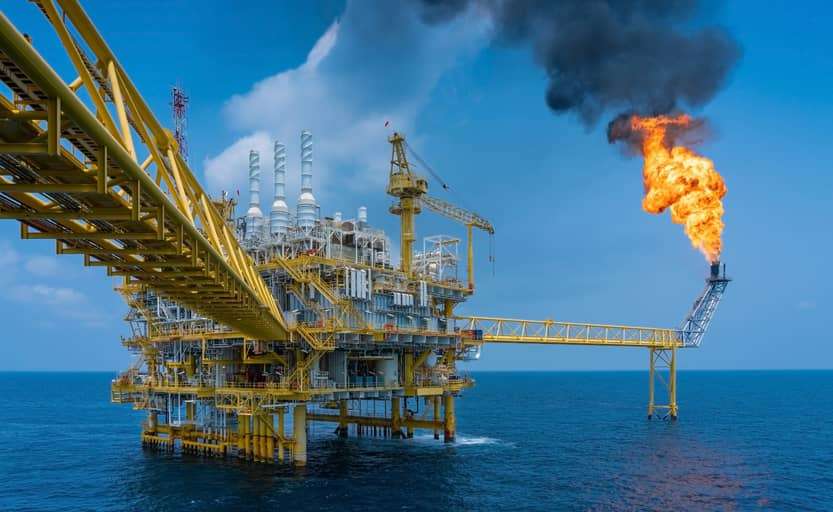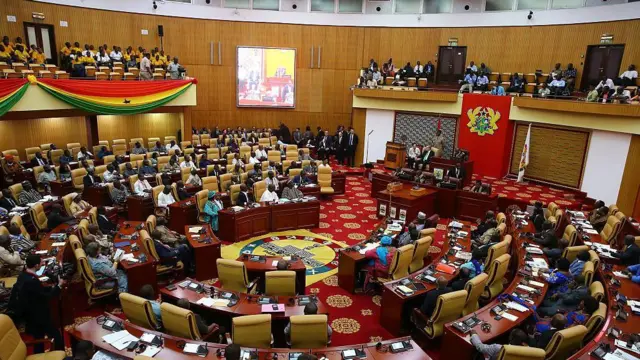Ghana’s oil production capacity is forecast to take a nosedive by 1.9 per cent owing to maturing fields and previous underinvestment in the oil sector, according to Fitch Solutions.
The research arm of the rating agency explained that this will have ripple effects on Ghana’s export growth, which is forecast to remain positive, adding 1.0 percentage points (pp) to real GDP growth, albeit lower than the 5-year pre-pandemic average of 1.5pp.
“We believe that maturing oil fields and previous underinvestment in the oil sector will prevent Ghana from increasing its hydrocarbon output over the year. Indeed, our Oil & Gas team forecasts that oil production in Ghana will fall by 1.9 per cent in 2022.”
Data from the Ghana Statistical Service (GSS) showed that the oil and gas sub-sector contracted by as much as 12.5 per cent last year, despite the rise in oil prices for the most at part of the year. This partly dragged growth in the industry sector to the negative 0.8 per cent.
Data from the Public Interest and Accountability Committee (PIAC) show that production fell from a peak of 71.44 million barrels in 2019 to 66.93 million barrels in 2020.
For the year 2021, a total of 55,050,391 barrels (bbls) were obtained from the three producing fields, lower than the 2020 figure of 66,926,806 bbls by 17.7 per cent and lower than the 2021 Benchmark Revenue crude oil output of 64.86 million barrels (15%).
The relatively lower production volume in 2021 was due to reduced production on all the three producing Fields. Following this trend, the government in its 2022 Budget Statement estimated that crude production would hit a 6-year low of 59.51 million barrels this year.

Crude Producers Urged to Ramp up Production
More so, this is despite Tullow’s (the largest of the country’s producing fields) ongoing multi-well drilling campaign at the Jubilee and TEN fields, which is to help offset production declines from Ghana’s oil fields over the near-term.
Kojo Oppong Nkrumah, Ghana’s Minister of Information is cited to have said the continuous decline in crude output has become a worry to the government, urging crude oil producers in the country’s oil fields to increase production. This is because a rise in crude output from the country’s producing fields will hike the its export revenues as oil prices continue to rally, in order to aid in cushioning its fiscal budget.
“Generally, there is limited capacity to increase production and that is resulting in the contraction we are seeing in the oil and gas sector. It is something the government is worried about and what we have been doing is to tell the producers to speed up the resolution of the challenges holding down production so that we can produce more to profit from the current price hikes.”
Kojo Oppong Nkrumah
Any major output rise may not be achieved in the short term, though a number of projects are in the pipeline. For instance, the 110,000 barrels per day (b/d) Pecan field operated by Aker Energy which is scheduled to come online by 2025.
Prior to the Russia-Ukraine war, Aker Energy, in its 2021 annual report stated that it was working with its licensed partners “to submit a revised Plan of Development for the DWT/CTP block by the end of second quarter 2022”.
However, there are also risks to these timelines, as Aker’s partner to the DWT/CTP block offshore Ghana, Lukoil (a Russian oil giant) is likely to face huge investment declines due to the sanctions on investment into Russian oil and gas sector as a result of Russia’s unprovoked war in Ukraine.
Following the trend in oil prices in the prior year, this year’s oil prices continue to remain elevated, hovering around $100/bbl. This means that Ghana could as well make a windfall gain from the rise in oil prices, albeit this is likely to be dwarfed should crude production decline.
READ ALSO: Perseus’s Gold Output rise by 2% to 130,523 ounces




















